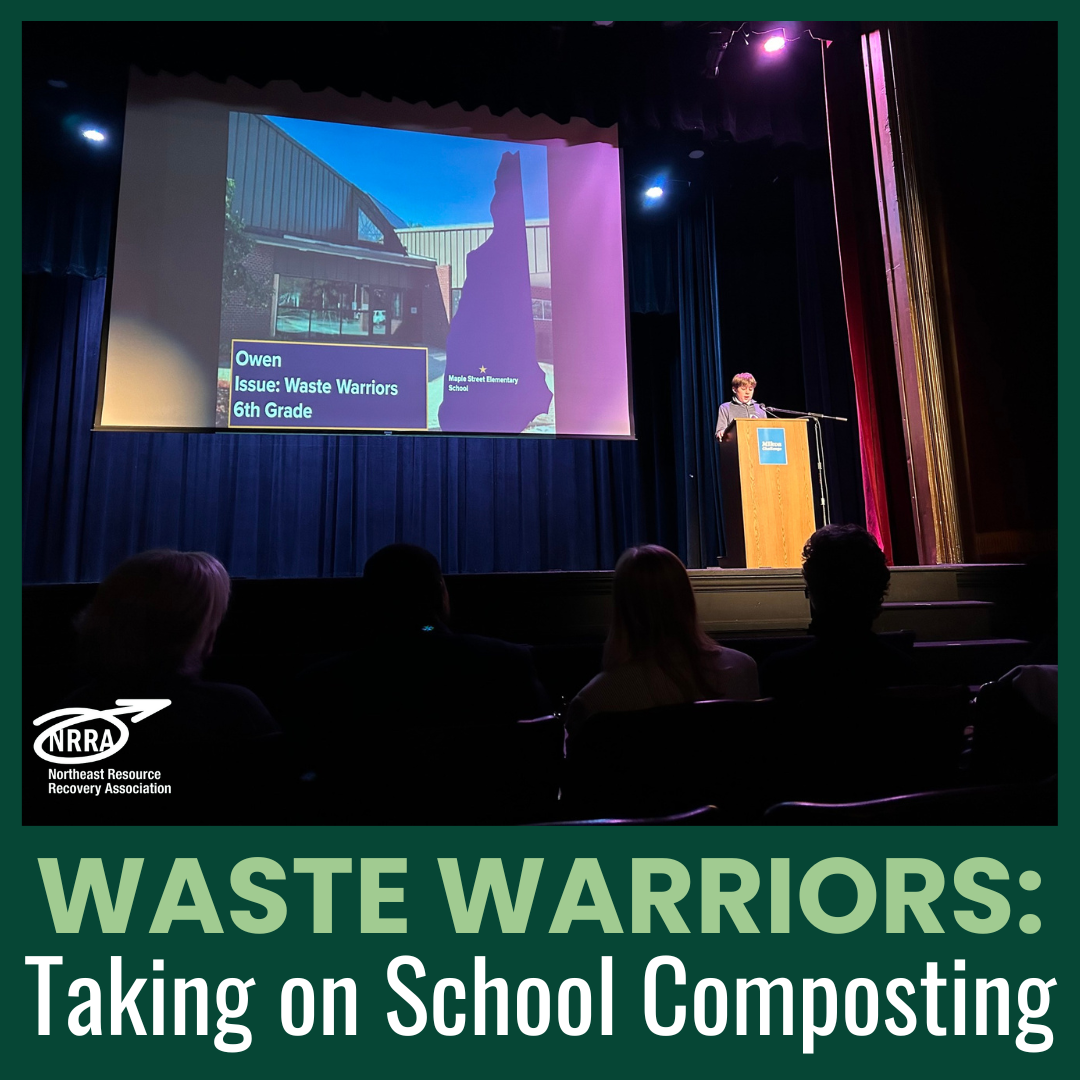Project Soapbox: Waste Warriors Take On Composting at School
In celebration of Earth Day 2024, we are delighted to share a recent speech given by Hopkinton, NH 6th grade student, Owen Lanman, during the New Hampshire Project Soapbox Showcase. Owen was able to choose a topic he felt passionate about and then wrote a compelling piece. Thank you to Owen and his teachers at the Hopkinton School District for allowing us to republish this piece!
Did you know that public schools in the United States produce over 14,500 tons of waste every day? My school addressed this issue head on. Three years ago we were using styrofoam lunch trays and plastic utensils, and didn’t compost at all. That has all changed. Now we have reusable trays and metal silverware, and a composting program that creates nutrient-rich soil for our gardens.
It wasn’t an easy transition. We had to educate both the staff and students to change their way of thinking about how we can lessen our environmental impact. We needed to be more mindful of our daily habits and choose practices that help reduce global warming, instead of contributing to it. If our school can do it, so can all schools!
I’m a “Waste Warrior” at my school, which means I have the important job of helping students learn how to properly sort and dispose of their waste. I also help dump and turn the compost each week. Would you believe that every day we collect an average of 20 pounds of compostable food waste? That’s about 100 pounds a week - almost 2 tons a year of food waste diverted from the landfill!
Speaking of landfills, did you know that buried and incinerated food waste puts large amounts of greenhouse gasses like methane and CO2 into our atmosphere? If you think composting is gross then landfills are really gross. At our school, we’re not only rebuilding our gardens with nutrient-rich compost, but by keeping all of this food waste out of the landfill, we’re helping the environment too!
Composting food isn’t a hard thing to do once you know how and understand the science behind it. We mix the food waste (called “greens” in composting lingo) with dried leaves, bark mulch, and shredded paper collected earlier in the fall (called, “browns”). This organic mixture of greens and browns creates the perfect environment for decomposers like worms, bacteria, certain bugs, and fungi to break down all of the organic material and turn it into compost. We use rotary composters to help aerate our mixture and speed up the process. Once the compost is finished in the rotary bins, we mix it with additional composted leaves we have on site and finish it off. The whole process takes several months. We then add this nutrient-rich soil to our school vegetable and flower gardens. Our healthy plants, in turn, support our local pollinators, make oxygen for the air we breathe, and provide food for our school and local community!
It’s only been a few short years, but we’ve already begun to shift people’s thinking about ways we can make a difference and help our environment. We invite anyone who wants to see our program in action to come to our school. Most people underestimate kids and what they can do, but kids CAN make a difference. We have the power to come up with real solutions, take action, and make change in our communities. Waste Warriors do it every day at my school. Schools across New Hampshire and our country can make meaningful changes too! If we all sorted our waste in this way, just think of the incredible impact we would have!
Thank you!
Want to bring composting to your school?
Check out our School Resources page
Want to bring composting or food waste diversion to your municipality?
Check out our Food Waste Diversion Toolkit
Want to bring composting to your business?
We recommend connecting with the Center for EcoTechnology
